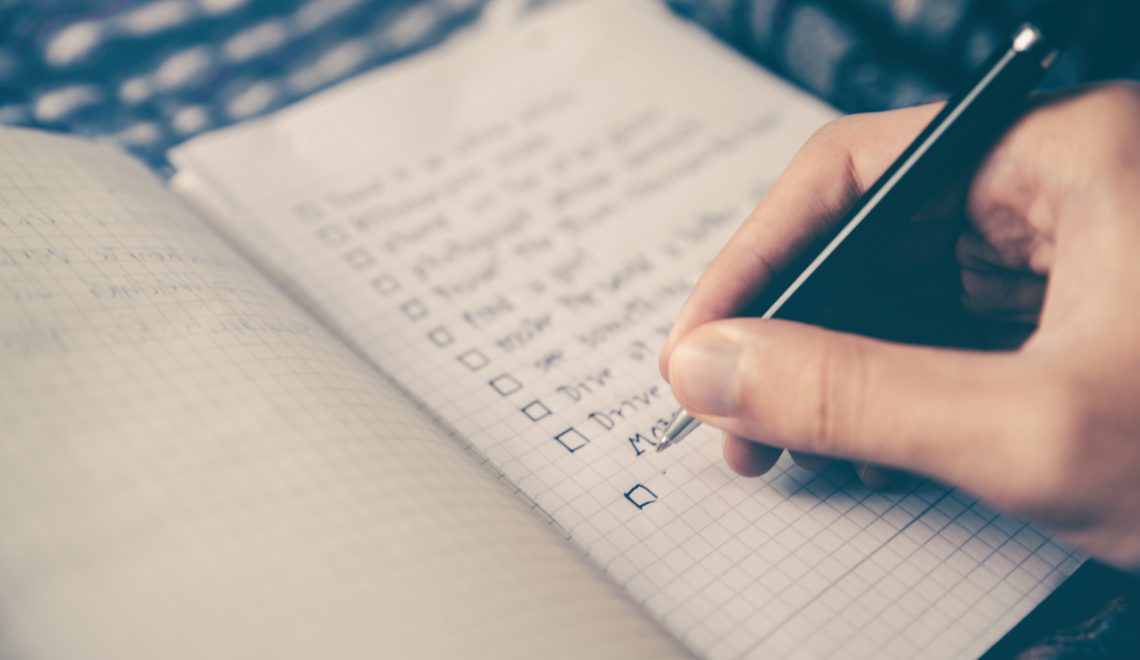
This blog primarily discusses some of the best techniques on how to study smart. But you will find that in doing so, you are also working hard. As a student, I was always a hard worker. I’m sure you’ve heard the phrase, ‘work smart, not hard.‘ Well, I’ve always believed that you need a combination of both. Working hard without working smart could result in a colossal waste of time, detrimentally affecting your goals.
In the same vein, sometimes working smart is not necessarily enough. You must also put in the required leg work to truly excel. It is hard, almost impossible, to fully escape the competitive nature of our world. This holds true for when you are in college as much as for when you enter the real world. As such, it is best to develop a habit of combining hard work and smart work as early as possible.
There is nothing worse than the feeling of disappointment you get when you expect great results but you’re let down. This sense of failure is even stronger if you believe that you put in your best efforts, leading you to question why you should even bother studying. Don’t give up just yet. First of all, you’re not alone. I know that I have, on multiple occasions, experienced this sense of nothing ever being good enough. But, I was wrong. Your work can be good enough and then some. All you might need is a slightly different approach to how you study. Here are some overarching guiding tips to help you get started.
Overarching Guidelines
Take Small Bites
One thing I’ve noticed that really helps is regularity and consistency. Okay, let’s unpack this a bit. The most fitting analogy I can think of is cleaning your room. The longer you wait, the messier and dirtier your room gets. If you clean a little every day, you avoid overwhelming yourself by having to do it all once. The same applies to the study. A little bit of reviewing every day and you’ll save yourself from the dreaded pre-exam anxiety. Plus, you can make this fun. The earlier you start the better it is for future you. Always keep future you in mind. Think about what they would say to present to you.
Put An End to Procrastination
You’ll find that excessive procrastination is the literal devil that stands in the way of personal growth and improvement. With a little bit of mindfulness, you can nip procrastination in the bud. Stay present and self-aware about when you tend to delay tasks, and what activities you engage in to prolong said tasks. Noticing your procrastination habits will help you better recognize them in the future. This is, in turn, will help you say, “no, I’m procrastinating. I just have to start my work now.” Trust me, it sucks at first but you’ll almost always sleep better. And the future you will thank you.
Figure Out How You Learn Best
Needless to say, all of us learn differently. The process of finding the technique of studying that suits you best is a matter of patience, practice, and trial and error. It follows from this that the first step you must take is figuring out the type of learner you are. Once you’ve done this, you’ll find that you can study faster. For instance, if you learn best in group settings where you can discuss notes, then find a study group. Better yet, make a study group. Notice how this process circles back to hard work already. On the same note, all of the tips and approaches I have listed below may not all fit your style of learning. Use what you need as a guide and build on it from there.
How to Study Smart
Understanding
 How do you know that you know the subject matter? Well if you can look at the information, move on to the next point, then come back to the previous point, look up into the sky and explain it in your own words, you know it. If you can’t, you don’t fully understand it.
How do you know that you know the subject matter? Well if you can look at the information, move on to the next point, then come back to the previous point, look up into the sky and explain it in your own words, you know it. If you can’t, you don’t fully understand it.
Notice how this is different from memorization. Understanding is more important because sometimes exam questions don’t follow a straightforward structure. These questions demand application.
So, you must be able to apply your knowledge. In order to fully apply yourself, you need to have a good understanding of the matter and concepts at hand. If you study with the intention to understand, you will be able to answer any question on a given topic.
Take learning anatomy for instance. When learning names and technical terms for different parts of the body, like the name of a bone, you are memorizing a fact. But you will also need to know what this one does. What is its function or purpose? Now you’re getting into conceptual learning.
If you simply memorize everything and don’t understand the actual function of the bone, you’ve just wasted a lot of learning. Once you actually grasp and fully comprehend a concept, that information will stay with you for a lifetime. Remember, can you put it in your own words?
Review- Ebbinghaus Forgetting Curve
The Ebbinghaus Curve is basically the decrease in our ability to retain information over time. Unless you consistently review learned knowledge, your memory will diminish. You will remember less tomorrow, even less next week, and even less in two weeks, and so on.
Ebbinghaus found that memory retention is 100% at the time of learning any particular piece of information. However, it drops rapidly to 40% within the first few days. Factors that affect the decline rate are, how meaningful the information is to you, how it is presented, and psychological factors (sleep, stress, etc). The study found that repetition based on active recall is crucial in improving your memory and ability to retain information, long-term.
While there are could be certain variations to the Ebbinghaus curve, one thing holds true. It is helpful to consistently go over the material at hand. Spatial repetition is key. The more you repeat something, the more you solidify it into your memory.
 Take Breaks and Get Enough Sleep
Take Breaks and Get Enough Sleep
I know you’ve heard of this too many times and you might say, “well hey I don’t have time for breaks! I don’t even have time to sleep!” To that I will say, we all have the same amount of time in a week. We all have 168 hours. How we chose to use those hours matters. More and more evidence is now being collected that shows a correlation between long- term retention and sleep.
If you stay up those extra three hours, at which point you’re not retaining anything anyway, you’ll end up losing crucial sleep time. Your brain is then unable to store all the information you crammed into it the night before. Wasted learning, wasted time.
When it comes to breaks, take them. Sitting down to study for six hours is only productive if you’re able to recharge your batteries. Study for 30 minutes, take a five-minute break. Use that time to do something rewarding for having studied for 30 minutes. Go back, and repeat. You’ll find that by the end of your time, you’ll have gotten in five and half hours of good work, with a total break time of 30 minutes. There is a science behind this. Your ability to learn effectively is not determined by how long you can continuously study for.
Teach Someone
Find someone, a friend preferably, who doesn’t understand the topic and then teach it to them. In doing so, you are literally forcing your brain to organize and condense all necessary and important information. This exercise can you save you hours of studying. If you absolutely cannot find anyone to teach, then teach yourself out loud.
Expand On Your Notes After Class
We already talked a little about studying small amounts every day. Another helpful tip is to not just review your notes, but expand on them the first free moment you get after you leave class. Ideally, this should be done right after your class. Take a few moments to flesh out what you remember from your lecture, giving your notes detail and depth. If you wait too long, you may forget some of your own notes. Of course, if you’re rushing to work or another class, you can always expand at a later time. I must stress, however, that it is exceedingly helpful to follow through with this method.
Using Environmental Cues
 People often underestimate the potential of environmental cues. Small habits can train your brain into following a pattern. For instance, get a small desk lamp and make it your study lamp. Every time you sit down to study at your desk, turn on the lamp. Whenever you feel yourself tiring, turn off the lamp. Get up, and leave. What you’re doing here is training yourself to study while you’re seated at your desk. Do this every time and you will find that it becomes automatic, like raising your hand. You sit down, turn on the lamp, and your brain knows it’s time to study.
People often underestimate the potential of environmental cues. Small habits can train your brain into following a pattern. For instance, get a small desk lamp and make it your study lamp. Every time you sit down to study at your desk, turn on the lamp. Whenever you feel yourself tiring, turn off the lamp. Get up, and leave. What you’re doing here is training yourself to study while you’re seated at your desk. Do this every time and you will find that it becomes automatic, like raising your hand. You sit down, turn on the lamp, and your brain knows it’s time to study.
This doesn’t just apply to the desk at a lamp. Because everyone is unique, your ideal study spot might be totally different. Find the environment, space, in which you feel most productive and get there as fast as you can.
Cut Distractions
The hardest part that requires the biggest internal push is getting yourself to start. So just go to your spot, and start. Whatever your distraction is, get rid of it. You can reward yourself with five-minute breaks, and maybe go check your phone or get on Facebook. But to make life easier on yourself, it’s best to cut distractions no matter how painful it feels at the time. You’ll get a lot more done, and you’ll thank yourself later.
Use a Variety Of Materials
![]() Use different modes and methods to learn what you need to know. In other words, you don’t have to solely rely on notes. I remember using my notes to create giant mind maps for a super dense history final. I took my notes and blew them up on huge chart papers. Then, I hung all of those charts up on my walls, including my bathroom. So no matter what, I had to look at them at least once a day. This method worked for me because I am a visual learner as well as a visual note-taker. Some other ways that you could mix it up to include watching videos, cross-referencing with textbooks, or finding alternative online sources.
Use different modes and methods to learn what you need to know. In other words, you don’t have to solely rely on notes. I remember using my notes to create giant mind maps for a super dense history final. I took my notes and blew them up on huge chart papers. Then, I hung all of those charts up on my walls, including my bathroom. So no matter what, I had to look at them at least once a day. This method worked for me because I am a visual learner as well as a visual note-taker. Some other ways that you could mix it up to include watching videos, cross-referencing with textbooks, or finding alternative online sources.
You could also consider changing the information into something fun. Maybe make a rhyme out of your key points, or a cool video, or a coloured diagram! This process helps you remember information on a deeper level, embedding it into your memory.
SQRR
I got this acronym from a video I watched recently on studying techniques by motivation2study. This link takes you to the page where you can download detailed notes on the lecture from the video. I thought it was very helpful and decided to include it in this blog. In fact, a professor of mine from college once told me a version of this method. Of course, only now do I fully appreciate the wisdom behind its simplicity.
S- Survey: Before you get to the note-taking and studying, survey your chapters. Surveying them is like looking at them from a helicopter view. In other words, a bird’s eye view.
Q- Question: While you’re surveying, start asking questions. What is this image I see of a microbe? How is it related to what I might have learned? The process of asking questions is very effective. When you’re actually looking for something, you’re more likely to find it.
R- Read: Now you read. When you do this, provided you’ve surveyed and questioned, you’ll find that you are able to read much faster, whilst eliminating extraneous detail.
R- Recite: Back to, can you put it in your own words? Say it out loud, explain it to yourself and others. Can you do it in your own words?
R- Review: Review is not studied time. Problem is, and I empathize with this, exams have a set date. In all likelihood, you wait till the night before and then pull an all-nighter. You can avoid this by following some of the steps I’ve talked about above. Then, when exam time comes, you’re really just reviewing.
Build Effective Study Habits
This takes time but if you stick with it you will build effective study habits. You won’t need to stay up till four in the morning for an 8am exam. Neither will you feel overwhelmed, like you never have enough time to get everything done.
Habits will make it easier for you to do what you need to. Start small. Maybe start with ten minutes in the morning for two weeks, then move up as you go. Fit your habit building schedule to how and when you learn best. When you sit down to study, you must know beforehand what it is you’re looking for. What do you need to focus on for this session? If you’ve prioritized your tasks well, don’t second guess yourself. This might include understanding what your professors are looking for from you and tailoring your work around that.
Hopefully, this has been a helpful post for most of you. I would like to add a couple of closing thoughts. Motivation is something I’ve always struggled with. Throughout this process of learning how to study better, you must remind yourself why you’re studying. What’s the underlying reason, the true reason. Tell people that reason just so you can remind yourself of it. And once you’ve developed effective study habits, you’ll find that the motivation is no longer a concern. Like brushing your teeth, you’ll just do it. Now go get your dream!
Got the studying down but can’t find the financing? Don’t sweat it! Simply download StuCred now for real-time student loans!
Tags: How to Study Smart, Ways to study smart, Tips to study smart, how to study smart quora, how to study smart Wikipedia, how to study smart pdf









